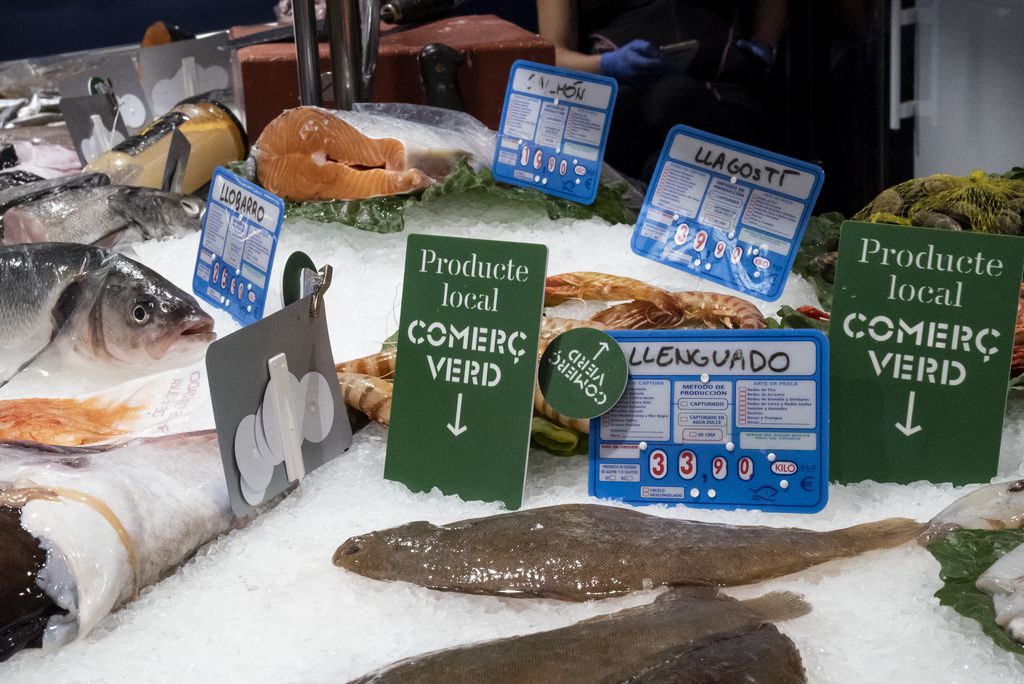Eat Sensibly
Eat Sensibly addresses the key pillars of healthy, fair and sustainable food to work towards a food transition that leads to stronger local economies and better health for people and the planet.
This space encourages participants to reflect on the current agri-food system and learn about alternative food options in school dinners and other meals. In addition, the value of farmers and the importance of conscious food consumption are highlighted.
Changing our buying and eating habits is crucial not just for our own health but also to mitigate the effects of climate change. At present, over 50% of greenhouse gases come from processes related to the production, transformation or transport of food.
Working on these topics at school, with clear goals and motivating resources and activities, has significant power to bring about change and helps increase critical awareness of our food model, all with the aim of making the educational community more conscientious and responsible.
More information
Resources
- Pedagogical suitcase - Eat sensibly (en català) (PDF 16.91 MB) Open in a new window
- Sustainability on the Plate - Project Systematization (en català) (PDF 3.51 MB) Open in a new window
- Educational resources for healthy, safe, and sustainable eating (en català) (PDF 3.23 MB) Open in a new window
- Nutrition: Informational Guide and Activity Proposals to Promote Agroecological Eating (en català) (PDF 5.35 MB) Open in a new window
- Report: for the right to culturally appropriate food (en català) (PDF 15.87 MB) Open in a new window
- Workbook: Local food for everyone (en català) Open in a new window
- At the Table! A Manual for introducing agroecological and local foods in schools (en català) (PDF 2.61 MB) Open in a new window
Sessions de la formació

Primera Sessió. Introducció, marc i recursos. Qui som i què farem?
En aquesta primera sessió formativa s'introdueix el tema i es presenten els centres educatius participants. S’expliquen els principals objectius, els recursos disponibles i també la metodologia de funcionament.
Location:
Vil·la Urània
When:
06/11/2024

Segona sessió. El sistema agroalimentari. Com transformar-lo i treballar alternatives des del centre?
En aquesta sessió coneixerem experiències innovadores que hagin treballat l’alimentació sostenible i el sistema agroalimentari des de l'àmbit escolar.
Location:
Institut Jaume Balmes
When:
15/01/2025

Tercera sessió. El peix i marisc que mengem, origen i consum + sostenible
Des de l’alimentació sostenible també volem mirar cap al mar. La importància d'un consum més variat de peix i com treballar-ho amb els infants.
Location:
virtual
When:
12/03/2025

Quarta sessió. Trobada de centres: “Masterchef” saludable, just i sostenible
Trobada d’intercanvi d’experiències amb un clar objectiu de participació activa en què l’alumnat pot compartir a través de receptes de cuina molt divertides els coneixements i activitats dutes a terme durant l’any.
Location:
Espai jove La Fontana
When:
30/04/2025

Cinquena sessió. Com ha anat el curs? Quins passos es plantegen de cara al futur?
Última sessió formativa on es volen presentar les experiències a partir d'una exposició i dinàmica participativa entre el professorat dels centres participants en la Microxarxa.
Location:
virtual
When:
21/05/2025


